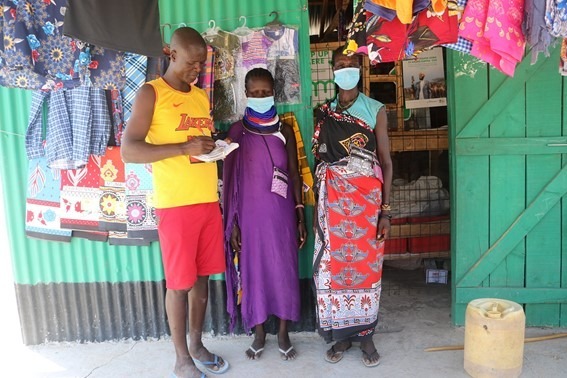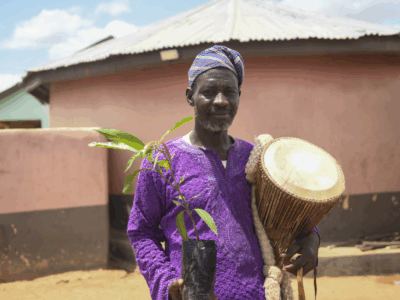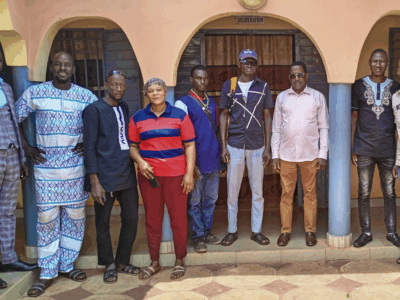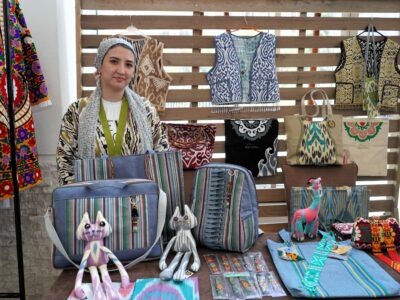
After losing his job, Emmanuel Ibei decided to take on the humbling position of helping his wife run her kiosk business. This was unthinkable considering the culture of the Turkana community in Northern Kenya and his prior reputable role. Little did Emmanuel know how he would later appreciate his newly found job.
He admits that it was not easy, as a man, to join a women’s group and become their mentor. The Feed the Future Kenya Livestock Market Systems Activity team met him at the shop located in the heart of Namadak village, where he shared his story.
“After receiving a termination notice from my previous employer, I found myself in a dire situation,” Emmanuel said “With children and an extended family to provide for, life couldn’t be harder.” The once breadwinner had no livelihood, and supporting his family turned into a nightmare.
Training Enables Participants to Improve Business Outcomes
The situation, however, took a sudden turn for the better when he joined a business group that his wife belonged to and took part in a business training organized by the Activity. As part of the Activity’s efforts to help households to increase their viable sources of income through livelihood diversification, Angingolea Business Group was among the 150 other business groups in Turkana County enrolled in the Activity’s Rural Entrepreneur Access Program (REAP). REAP is a two-year poverty graduation model developed by the BOMA Project to empower women to exit extreme poverty by building their resilience to shocks and stresses.
The program trained them for 30 days on recordkeeping, simple business models, and more. The group then opened a kiosk to sell food commodities. But, because many women in Turkana do not have the opportunity to finish school and gain literacy skills, their businesses performed dismally until Emmanuel, who is literate, offered to help them organize their records.
Emmanuel streamlined the group’s business records and business acumen. His wife’s business group tripled its stock level from KES 20,000 to KES 60,000 within six months. According to Emmanuel, all transactions were recorded, supplies were on time, and customer confidence grew. “Using the skills that we got from the training, we were able to calculate just how much profit or loss we were making and where most sales were being generated. This helped us to focus on those areas, and that is why the profits took a sharp rise,” he said.
Emmanuel is now in charge of purchasing business supplies for the kiosk from Eldoret town, approximately 150 kilometers away. He also encouraged the group to open a joint account and save money for their business expansion. The group now sells homeware. To his surprise, his wife gave him KES 40,000 from her savings to contribute tor their daughter’s annual school fees. “My husband has been so supportive, and he volunteered selflessly to train me and my group members on managing and expanding our business,” she said.
Emmanuel trains the women on the importance of forming groups and the benefits of saving together. He also trains them on numeracy and how to run a business effectively. He believes there is room for expansion and will continue empowering and supporting women for growth.
“Women are the backbone of communities, and, if given the right kind of support, empowerment, and knowledge, the world as we know it will be a better place. I challenge other men to be more supportive of the women in their lives and watch how much their communities will thrive.”
–Emmanuel Ibei, Livestock Market Systems Activity LEAP Program participant
The Feed the Future Kenya Livestock Market Systems Activity, funded by USAID, is implemented by ACDI/VOCA in consortium with Mercy Corps, The BOMA Project, and Smart Regional Consultants.
Learn more about our work in Kenya.








